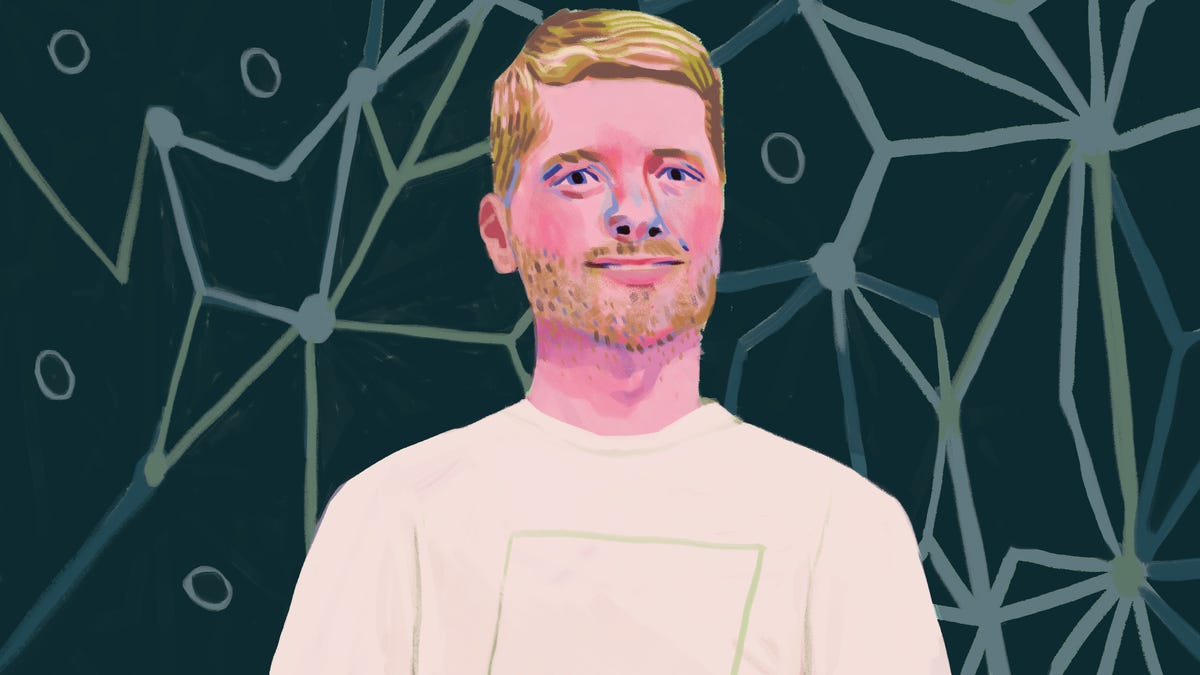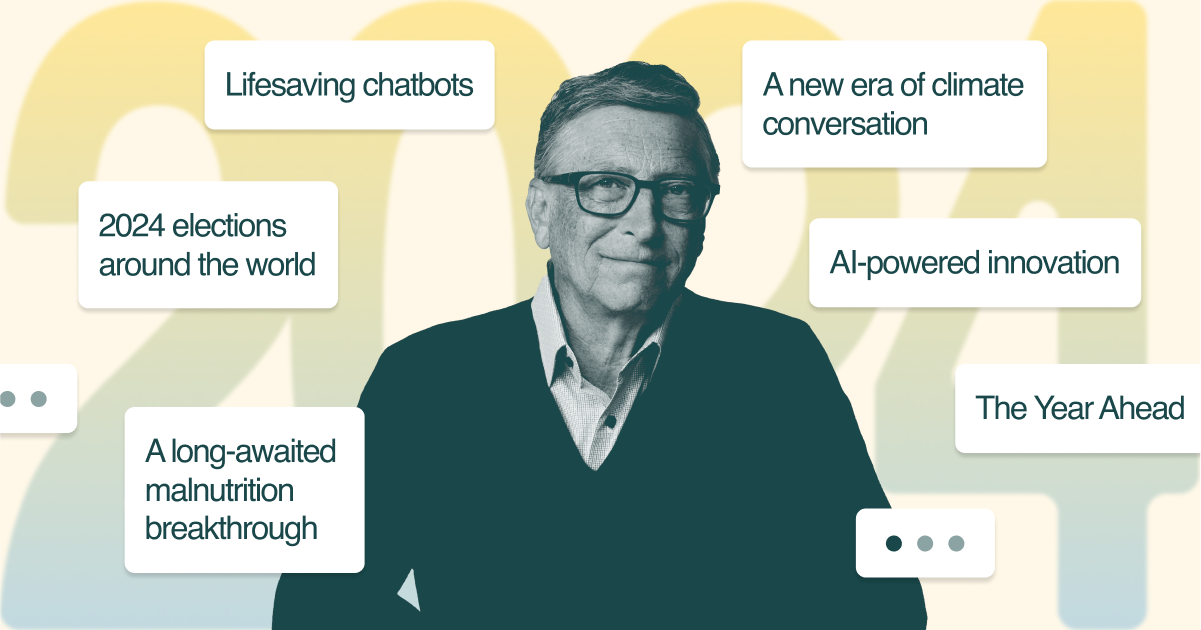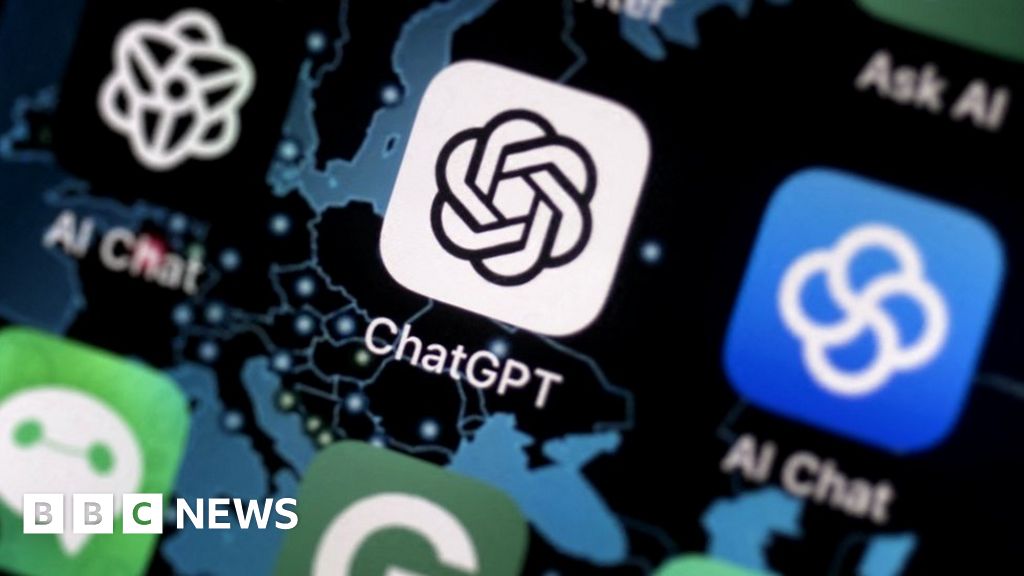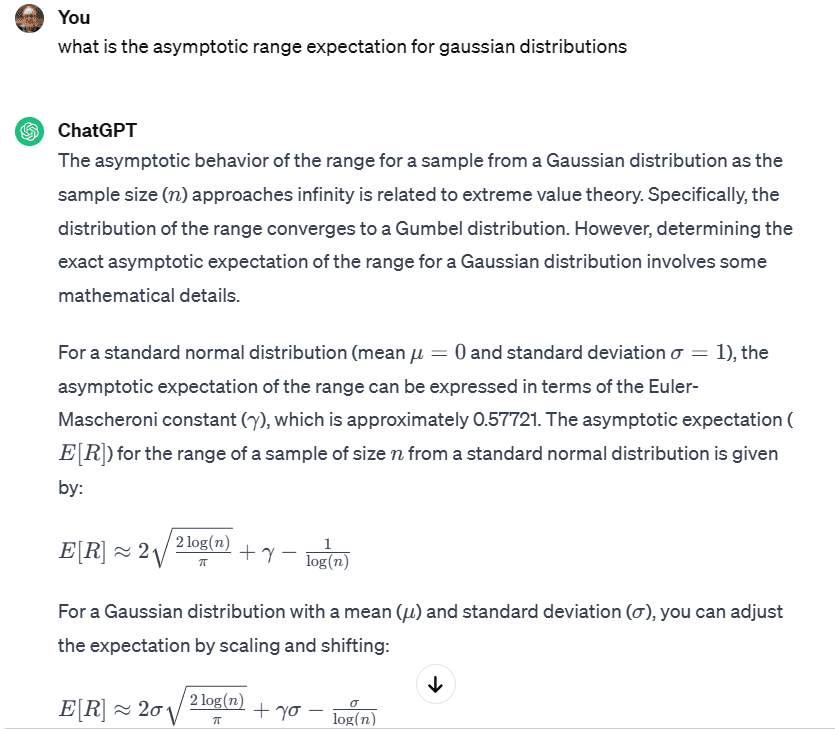Happy New Year to all subscribers!
As we bring in 2024, a year that is poised to be monumental for Artificial Intelligence in project delivery, we are thrilled to embrace this era of transformation and innovation. We're excited to announce that what was previously known as the Global AI in Construction Newsletter has now evolved into Project Flux. This change reflects its expanded focus and commitment to bringing you the most comprehensive insights across the spectrum of AI in project delivery.
In this edition of Project Flux, we delve into the latest advancements and trends that are shaping the AI landscape in 2024. From significant rulings in the Supreme Court to groundbreaking tech trends, we are here to guide you through these exciting developments.
With a series of new features and in-depth analyses planned throughout the year, we are committed to keeping you at the forefront of AI's role in transforming project management, project delivery and execution.
Here's a quick look at what's inside this edition of Project Flux. This topics list is designed to guide you effortlessly through the topics we're covering, ensuring you stay informed about the latest in AI and project delivery. Let's dive in!
Table of Contents
General AI News
/cdn.vox-cdn.com/uploads/chorus_asset/file/10551085/acastro_180329_1777__brains_science_0002.jpg)
AI Denied: UK Supreme Court Voids AI's Patent Rights, Citing Human Creators Only
The UK Supreme Court has ruled that AI cannot be recognised as an inventor, declaring that only humans or companies can hold that title. The decision follows a similar ruling made in the US, where Stephen Thaler, the founder of the AI system DABUS, lost an appeal to name his AI as an inventor. Thaler had petitioned to register DABUS as the inventor of a food container and a flashing light beacon, but the UK's Intellectual Property Office rejected the request, stating that inventors must be human or a company.
The court's decision was based on the fact that there is no existing law that recognises a machine as a creator. The ruling raises questions about how to deal with AI-generated material, a topic that is also being debated in the US.
OpenAI Unveils New GPT-4 Turbo and Autonomous AI Agents
OpenAI recently made a groundbreaking announcement that has left the tech community in awe. The introduction of GPT-4 Turbo, the latest iteration in the GPT series, has taken AI capabilities to a whole new level. With a staggering context window size of 128,000 tokens, GPT-4 Turbo is set to redefine what AI can achieve. But that's not all. OpenAI has also unveiled the concept of autonomous AI agents. These digital entities, known as GPTs, represent a significant step towards full autonomy. While they are not fully autonomous yet, they are far from mere playthings. They allow users to create agents that can act on their behalf, serving as an intermediary step towards achieving full autonomy.
OpenAI's strategic approach involves gradually introducing autonomous AI agents, with GPTs serving as the building blocks. This hints at a roadmap leading to a future where AI agents can operate independently. The opportunities presented by OpenAI's advancements are massive. The ability to build and sell AI agents in the OpenAI Store has the potential to create millionaires and transform conversations into fortunes.

OpenAI partners with Axel Springer to revolutionise AI-driven journalism
OpenAI and Axel Springer have announced a partnership to integrate AI technologies into journalism. As the first publishing house to collaborate with OpenAI in this way, Axel Springer aims to enhance content experiences and support the sustainable future of journalism. Through the partnership, ChatGPT users will receive summaries of recent news content from Axel Springer brands like POLITICO and BUSINESS INSIDER, including paid content. The answers provided by ChatGPT will also include attribution and links to the full articles for transparency and further information.
The collaboration will also involve the use of Axel Springer's quality content to advance the training of OpenAI's language models. Axel Springer's CEO, Mathias Döpfner, expressed enthusiasm for exploring the opportunities of AI-powered journalism, whilst OpenAI's COO, Brad Lightcap, emphasised the commitment to working with publishers and creators globally to benefit from AI technology and new revenue models.

Hugging Face CEO Champions AI Democracy: Open-Source Approach Shakes Up Tech Giants
Clément Delangue, the CEO of Hugging Face, is advocating for an AI democracy by promoting open access to artificial intelligence models. Hugging Face is a platform that allows developers and startups to freely access AI models, making AI development more accessible and transparent. Delangue believes that it is risky to concentrate the power of AI in the hands of a few big tech companies and instead wants more companies to share their models and datasets publicly.
Unlike other AI developers who guard their proprietary technology, Hugging Face takes an open-source approach, empowering the community and creating more value. The platform has gained popularity and currently serves thousands of organisations. Delangue's advocacy for openness and transparency in AI development has attracted heavyweight investors, and Hugging Face was valued at $4.5 billion. The company envisions itself as a community building the future of AI development and aims to have 10 million users on the platform in 2024.

New York Times Takes On Microsoft and OpenAI in Copyright Showdown, Demands 'Billions'
The New York Times has lodged a legal claim against OpenAI, the owner of ChatGPT, and Microsoft, alleging that its copyright was infringed upon to train the language model system. The claim argues that OpenAI and Microsoft should be held responsible for "billions of pounds" in damages. The New York Times asserts that millions of its articles were utilized without authorization to train ChatGPT, which is now competing with the newspaper as a reliable source of information.
The claim states that ChatGPT occasionally produces "verbatim excerpts" from New York Times articles, enabling readers to access the content without payment, resulting in a decline in subscription revenue and advertising clicks. This legal claim follows other cases of copyright infringement against OpenAI, including one filed by Game of Thrones writer George RR Martin and John Grisham. None of these cases have been resolved yet.

Apple Seeks Partnerships with Major Publishers to Revolutionise AI Training
Apple is in talks with major publishers, including Condé Nast, NBC News, and IAC, to establish partnerships that would allow the company to train generative artificial intelligence (AI) systems on news content. Apple is seeking multiyear deals valued at least $50 million, which would grant the company access to licence archives of news articles. Whilst some of the publishers have been lukewarm about Apple's offer, others are optimistic about a potential partnership.
Apple's move comes as it aims to catch up to its rivals, such as Microsoft, Google, and Meta, in incorporating AI into its products. By training its AI model on more tailored and reliable information from reputable publishers, Apple hopes to develop a more accurate and trustworthy product.

OpenAI's New Preparedness Framework: Building Frontier AI Models with Safety in Mind
OpenAI has released its Preparedness Framework to address the risks associated with increasingly powerful AI models. The framework is designed to track, evaluate, forecast, and protect against catastrophic risks posed by these models.
The Preparedness team at OpenAI works alongside safety and policy teams to mitigate AI risks. The company focuses on both the current misuse of AI models and the potential risks of superintelligent models in the future.
OpenAI aims to ground its preparedness efforts in science and data-driven predictions rather than hypothetical scenarios. The company plans to continuously evaluate and update the safety measures for its models and establish risk thresholds that trigger baseline safety measures.
They will also establish a dedicated team for technical work and safety decision-making and seek external accountability and feedback through safety drills and audits. OpenAI is committed to reducing known and unknown safety risks and plans to regularly update the framework based on feedback and new insights.

AI-Powered Energy Savings: The Key to Achieving Net-Zero and Lowering Household Bills
As countries work towards achieving net-zero emissions, AI-powered energy savings are becoming essential in reducing household bills and carbon footprints. The built environment is responsible for 40% of global CO2 emissions, with building operations alone accounting for 27% of that figure.
To address this, it is important to modify behaviours, embrace technology, and choose renewable energy sources. However, challenges such as a lack of grid capacity, economic slowdowns, population growth, and fuel poverty must also be overcome.
AI-powered energy savings can help address these challenges. By empowering households to generate their own energy and manage it efficiently using AI technology, it is possible to reduce energy consumption and balance demand. This will not only contribute to emissions reductions but also lead to cost savings for homeowners.
With the use of AI, homes can become smarter, more efficient, and ultimately achieve carbon net-zero status.

AI Invasion: Which Jobs Are Most at Risk According to a UK Study?
A recent study conducted by the UK's Department for Education has identified the jobs most at risk from artificial intelligence (AI). The study analysed the potential for AI to automate various job functions and found that 10-30% of jobs are automatable with AI.
The study assessed 10 AI applications, including abstract strategy games, image recognition, language modelling, and speech recognition, to determine the level of AI exposure for different roles. The findings revealed that "professional occupations" in sectors like finance, law, and business management were the most exposed to AI.
Additionally, the study found that jobs requiring more education and advanced training were more likely to be impacted by AI. However, the study also emphasised that most jobs are only partially exposed to AI, meaning employees in these roles are likely to benefit from AI technology rather than having their jobs fully replaced.
AI in Property and Construction

Revolutionising Real Estate Finance: Andrew Knight's Insights on Digital Transformation
The article on digital transformation in real estate finance is a thought-provoking piece that offers valuable insights and in-depth analysis. It provides a comprehensive view of the challenges and opportunities that arise in this rapidly evolving field. Written by Andrew Knight, a renowned expert in the industry, the article delves into the intricacies of collaboration and technology, emphasizing their pivotal role in driving innovation. With its wealth of information and forward-thinking perspective, this article is a must-read for anyone interested in gaining a deeper understanding of the future of real estate finance.

2024: How AI, IoT, and BIM 2.0 Will Revolutionise the Construction Industry
Construction technology is set for a major transformation in 2024, with artificial intelligence (AI), digital twin technology, and Building Information Modelling (BIM) 2.0 leading the way. AI will play a pivotal role in design workflows, streamlining the process and making it more intuitive for architects and designers. Vectorworks, a leading software provider, is exploring AI integration into its software, including AI image generation and visualisation as well as an AI chat feature to enhance designer support. Meanwhile, digital twin technology will revolutionise the construction industry by allowing stakeholders to create virtual replicas of physical structures, enabling real-time data exchange and collaboration. Lastly, BIM 2.0 goes beyond traditional 3D modelling by incorporating advanced data analytics and real-time collaboration tools to enhance project coordination and improve efficiency.

Revolutionary 3D Printed Low CO2 Concrete Building Unveiled in Copenhagen
A 72-square metre community building has become the first-ever low CO2 concrete building to be 3D printed. Developed by 3DCP Group in Copenhagen, the building was created using a special low CO2 cement that has a carbon footprint 30% lower than normal cement. The cement was mixed with local sand and gravel and turned into 3D printable concrete using the D.fab admixtures method developed by Cemex and COBOD. Compared to 3D printing with mortars, the use of low CO2 cement reduces the carbon footprint by 50%. Once completed, the building will house a gym, a guest room, and a common laundry facility. The project is seen as a leap forwards in construction methods and holds potential for using alternative materials in 3D printing, such as clay-rich soil.

Bahrain's Revolutionary AI-Powered Property Data Bank Empowers Agents with Comprehensive Information
Bahrain has launched the Aqari Data Bank, an AI-powered platform that provides comprehensive information to estate agents in the country. The platform is part of Bahrain's digital transformation efforts and aims to create a sustainable property sector and promote growth in the industry.
The launch of Aqari reflects the government's commitment to good governance and integration among government agencies. The platform will help keep Bahrain in step with international best practices in the property sector and contribute to the country's economy.
Aqari will provide accurate and transparent information to investors, developers, and brokers, improving the success rate of property projects and reducing risk. It will also enhance effective decision-making in the sector and contribute to the overall output of the Bahraini economy.
The platform is part of the country's National Property Plan and aligns with Bahrain's efforts to attract local and foreign investment.

Revolutionising Construction: How AI Became the Game-Changer of 2023
In 2023, the construction industry witnessed a rapid adoption of artificial intelligence (AI), machine learning, and ChatGPT. AI has been praised for its potential to transform the industry, but concerns about privacy and the inability of humans to fully understand its applications have also been raised.
The Associated General Contractors of America (AGC) has increased its programming of AI educational sessions to address these concerns. Whilst AI has shown promise in areas such as employee conflict resolution, drafting marketing materials, and creating project estimates, it is important for firms to exercise caution and understand the risks associated with sharing data on AI platforms.
The AGC advises firms to stay informed about AI's rapidly changing landscape and to continuously learn about its strengths and limitations. Ultimately, AI has the potential to revolutionise the construction industry, but it should be approached with care.
Predictions for 2024 and the Year Ahead

Stay Up to Date with the Latest Trends in AI and More!
In his latest presentation, Benedict Evans explores the macro and strategic trends in the tech industry for the year 2024. Titled 'AI, and everything else', the presentation delves into the impact of artificial intelligence on various aspects of our lives. Evans gave a keynote version of the presentation at the Slush conference in Helsinki in December 2023, and the video is available for viewing. This annual presentation is a highlight for tech enthusiasts, as it provides insights into the future of the industry. Evans is known for his newsletters and presentations that dissect the important and noteworthy events in the tech world, offering context and analysis to help readers and viewers navigate the noise.

The Vanishing Act: How AI Will Disappear from Our Lives in 2024
According to a recent report by NBC, artificial intelligence (AI) could become so widespread that it fades into the background, becoming virtually invisible to users. Only 4% of businesses currently use AI, but in the future, it may become a normal and unremarkable part of our daily lives. For example, email spam filters, smartphone predictive text, and streaming service recommendations are already powered by AI. Additionally, within organisations, AI is being integrated into core technologies at an increasingly rapid pace. The invisibility of AI will be driven by its integration and ease of use in everyday applications and devices. However, whilst it may become less visible, AI is expected to have a profound impact on businesses and society.

The Road Ahead Reaches a Turning Point in 2024: Bill Gates Shares His Optimistic Forecast
In his year-end letter, Bill Gates reflects on 2023 and looks ahead to the turning point of 2024. He highlights the impact of artificial intelligence (AI) in medicine and education, discussing progress in drug discovery, personalized education tools, and improving health outcomes for pregnant women and HIV risk assessment. Gates emphasizes tailoring AI innovations to low-income and middle-income countries' needs, improving access to medical information and healthcare services for underserved communities. He shares optimism for addressing malnutrition through understanding the gut microbiome and tackling the climate crisis through clean energy and nuclear power investments. Gates stresses the importance of the 2024 elections in shaping global health and the climate, conveying belief in the power of innovation for a better future.

Tech Trends 2024: AI Takes Off and Electric Vehicle Deals Drive the Market
The year 2023 saw the rise of generative AI, with Microsoft-backed ChatGPT leading the way. Alphabet, the parent company of Google, recently unveiled its own generative AI system, Gemini, which it claims outperforms ChatGPT. However, OpenAI, the creator of ChatGPT, has promised a more powerful software version for next year. Despite the hype, some experts have warned of obstacles and challenges that could hinder the progress and widespread adoption of generative AI, including high costs, a shortage of computer chips, and potential regulatory and legal challenges.
On the other hand, 2024 is expected to be a challenging year for electric vehicle (EV) manufacturers. Major companies such as Ford, GM, and Tesla have all paused their plans to expand EV production due to a price war and supply chain issues. However, the UK could be a bright spot as EV sales are set to grow due to the introduction of a zero-emission vehicle mandate.
Lastly, humanoid robots are set to become more useful in the coming year. Tesla is developing Optimus, a humanoid robot capable of doing basic factory jobs by 2024, while other companies such as Amazon and Sanctuary AI are also exploring the field.
AI in the Past

The Astonishing Vision of Arthur C. Clarke
In 1964, the renowned writer and inventor Arthur C. Clarke made some bold predictions about the future on BBC's Horizon programme. His confident statement, "The only thing we can be sure of about the future, is that it will be absolutely fantastic," still resonates today. Clarke, known for his science fiction novels, was ahead of his time in envisioning the technological advancements that would shape our world. He spoke about the potential of computers, predicting that they would become so powerful that they could solve complex mathematical problems and even create music. Clarke also imagined a world where people could communicate with each other through video calls, an idea that seemed far-fetched at the time but has become a reality with the rise of platforms like Skype and FaceTime. His optimistic outlook and innovative thinking continue to inspire and remind us of the incredible possibilities that lie ahead.
2023 Key Trends
2023: A Year of Impressive Advancements in ChatGPT and LLMs
The article highlights the significant developments and popular articles in the field of data science and machine learning in 2023. The launch of ChatGPT in late 2022 played a crucial role in shaping the landscape of AI and how it impacts society.
The selection of articles featured in the summary represents the most popular and engaging pieces that resonated with readers and sparked thoughtful discussions. Some of the articles covered topics such as the working model behind ChatGPT, the impact of LLMs on professions, the risks of relying on LLMs for information, the democratization of building LLM-powered apps, and comparisons between different LLM models.
The summary also acknowledges and expresses gratitude to the community, authors, partners, and editors for their support throughout the year. The article concludes with a teaser for the upcoming edition featuring standout posts on data science, programming skills, career paths, and special projects.

Data Trends 2023: New Infrastructure, Reverse ETL, and the Rise of Data Literacy
In this article, the author discusses data trends and predictions for 2023. Key points include the shift towards new infrastructure, the rise of reverse ETL, and the importance of data literacy.
One trend mentioned is companies moving towards new infrastructure. With the pandemic accelerating digital transformation, organizations are reassessing their readiness to adopt new technology, with data infrastructure being a key factor. Smaller companies are migrating from off-the-shelf tools to modern data stacks, while larger companies face the challenge of messy infrastructure and deciding whether to untangle it or migrate to a new system.
Another trend is the rise of reverse ETL. Companies are replacing customer data platforms with tools like Census and Hightouch, which can pipe modeled data into end applications used by teams. This provides flexibility and cost savings compared to traditional CDPs.
The article also highlights the importance of data literacy. Many companies struggle to become truly data-driven due to a lack of understanding. The author emphasizes the need for more courses, workshops, and certifications to bridge the gap, along with data roles focused on change management and democratization.
Overall, the article provides insights into key data trends and predictions for 2023, offering valuable information for businesses aiming to stay ahead in the data-driven world.
Dictionary.com Reveals Surprising Word of the 2023: Hallucinate, the AI Phenomenon Explained
Dictionary.com has announced its Word of the Year for 2023, and it's not what you might expect. The chosen word is "hallucinate," which may seem unrelated to artificial intelligence (AI) at first. However, Dictionary.com explains that in the context of AI, hallucinate means to produce false information and present it as true. The site chose this word because it saw a 46% increase in lookups and an 85% increase in media usage throughout the year. The word is notable because it refers to a way in which AI can malfunction, similar to terms like spam and virus that have become ingrained in our language. The choice of "hallucinate" serves as a reminder that AI is not all-knowing and perfect. It indicates that AI models generate words based on probabilities and lack true understanding. With AI becoming increasingly integrated into our lives, it seems we will be encountering more AI-related terms in the near future.

Unlocking the Power of LLMs: The Surprising Secret Behind Better Information Retrieval
In this article, the author discusses the role of data gathering and organisation in language models such as GPT (Generative Pre-trained Transformer). Whilst there is much focus on the deep neural networks and embeddings that drive these models, the quality of the data input plays a crucial role in the accuracy of the results generated.
The author shares a case study where they were looking for specific answers related to Gaussian distributions and alternative series to Taylor series. Despite using search tools like Google and GPT, they were unable to find the correct answers.
The author emphasises the importance of using high-quality sources and having a well-structured taxonomy to improve the accuracy of language models. They discuss their own solution, which involves crawling selected websites like Wolfram, ArXiv, Wikipedia, Google Scholar, and Stack Exchange to gather relevant information and create keyword correlation tables.
The author believes that smart crawling, combined with extensive knowledge of quality sources, is key to building efficient and accurate language models.
Cyber Crime and Regulation

AI Regulation Race: Countries Pave the Way, but Will Bans Hinder Progress?
Concerns over privacy, safety, and security have led governments to rush to introduce regulations to control the use of AI.
China was the first country to regulate AI with a new law targeting generative AI, followed by the US, which released an Executive Order focused on AI safety and trust. In December, the European Council and Parliament reached a provisional agreement on an AI Act, which will classify AI systems based on the risks they pose.
The proposed EU legislation aims to ban AI systems using biometric categorisations, facial recognition databases, emotion recognition in the workplace, and systems that manipulate human behaviour. The penalties for non-compliance with the regulations are significant, and businesses are concerned about the potential impact on their operations.
However, there is a need for a more pragmatic and growth-friendly approach to regulating AI to harness its economic and transformative potential while addressing ethical and privacy concerns.
Europe Leads the Way with Historic AI Rules: Ensuring a Safer and More Efficient Future
Europe has reached a historic agreement on the world's first comprehensive rules for artificial intelligence (AI). The deal, known as the Artificial Intelligence Act, provides legal oversight for AI technology and addresses concerns about its impact on society.
Negotiators from the European Parliament and the EU member countries overcame differences on controversial issues such as generative AI and police use of face recognition surveillance to reach the agreement. While civil society groups have expressed concerns about the deal not going far enough in protecting people from the harms of AI, European Commissioner Thierry Breton hailed it as a significant achievement.
The agreement sets the stage for Europe to become a global leader in AI regulation, with other countries likely to emulate its approach. The AI Act is expected to be voted on by the European Parliament early next year and, if ratified, would come into effect by 2025.
AI in Other Industries

Simply Homes Secures £22M in Funding, Uses AI to Tackle Affordable Housing Crisis
Portland-based startup Simply Homes has raised £22m in funding to help tackle the UK affordable housing crisis using artificial intelligence (AI). The firm purchases single-family houses in run-down neighbourhoods and renovates them before renting them out to low-income families, including elderly and disabled individuals.
CEO Brian Bagdasarian said no one else is operating in its market, providing well-maintained affordable homes to those most in need. He added that if children move into areas with lower poverty rates, they can see a 31% increase in lifetime earnings. Bagdasarian said Simply Homes anticipated high interest rates when building its model, while income is highly predictable because 30% tenant payments are covered by a Housing Choice Voucher.

Boots Set to Revolutionise Shopping Experience with AI Personal Shopper
Boots, the British health and beauty retailer, is reportedly testing an artificial intelligence (AI) chatbot that could serve as a "personal shopper" for customers. The chatbot would provide recommendations for beauty gifts and lipsticks, making Boots the first mainstream consumer to adopt AI software in this capacity. The company's sales have been increasing both online and in-store, with Boots.com experiencing a 25% increase in sales compared to the previous year.
As part of its long-standing partnership with Microsoft, Boots already uses the chatbot in other areas of its business. The launch of the AI personal shopper is expected to occur after Christmas.

Experience Travel Like Never Before with Tripo AI
Planning a trip can be a daunting task, but thanks to Tripo AI, that may soon change. This advanced artificial intelligence technology is revolutionising the way we plan our holidays by simplifying the process and making it more engaging.
Tripo AI uses its deep learning algorithms to analyse vast amounts of travel data and provide personalised recommendations based on a user's preferences. Not only does it help users find the best flight and hotel deals, but it also suggests activities and attractions that match their interests.
What sets Tripo AI apart is its ability to learn from user feedback and refine its recommendations over time. Whether you're a seasoned traveller or a novice just dipping your toes into the world of wanderlust, Tripo AI is here to ensure you have a memorable and stress-free journey.

AI Revolution: Over 40% of Labour Force to be Affected in Next 3 Years
According to Morgan Stanley, artificial intelligence (AI) is set to have a significant impact on the labour market in the coming years. Analyst Brian Nowak estimates that AI technology will have a £4.1 trillion economic effect on the labour force, affecting approximately 44% of jobs. This effect will be the result of changing input costs, task automation, and shifts in the ways companies obtain and analyse information.
Currently, Morgan Stanley estimates that AI affects 25% of the labour force, with an economic effect of £2.1 trillion. The projections from Morgan Stanley coincide with a strong performance of AI-related stocks in 2023. The firm sees positive opportunities for software companies resulting from increased AI adoption, predicting that software vendors could capture 5% of the £4.1 trillion labour effect, worth £205 billion over the next three years.
Big Tech

Big Tech's Grip on AI: Why Microsoft, Amazon, and Others Call the Shots
In the world of Artificial Intelligence (AI), Big Tech companies such as Microsoft, Amazon, and Google hold significant power and control. These companies dominate the AI industry by providing the computing infrastructure, data, and market reach necessary for training and deploying AI systems.
Startups and new entrants in the field rely heavily on these tech giants. The recent OpenAI board breakdown, with Microsoft exerting its influence, showcases the immense power held by these companies. Concentrated power in the tech industry not only poses problems for the market but also for democracy and individual agency. The reliance on a few unaccountable corporate actors for core infrastructure is worrisome.
Furthermore, the risk of security threats and systemic failures increases when there are just a small number of AI models and actors at the foundation of the AI ecosystem. Regulation and a robust accountability regime are necessary to address these issues and ensure that the interests of the public are prioritised over corporate profits.

The A.I. Race Heats Up: Inside the Battle for Technological Domination
In this recent article from The New York Times, the authors delve into the race to dominate artificial intelligence (AI) and its impact on the tech industry. The article highlights the history of AI, starting with the development of AI technologies by influential figures such as Sam Altman, Elon Musk, and Larry Page. These leaders were torn between their fears of the potential dangers of AI and their ambitions to create advanced AI systems. As a result, they formed their own AI labs, sparking competition and rapid advancements in AI technology.
The article also discusses the rapid integration of AI into daily life, raising concerns about accuracy, bias, and safety. The lack of meaningful oversight and regulation in the industry is also highlighted, leaving the responsibility of ensuring AI safety in the hands of individual companies.
The authors conclude by noting that the race to dominate AI continues, with major tech companies pushing forward with AI development despite the potential risks.

CEO of OpenAI Battles for Control: The High-Stakes Drama Behind the Scenes
In November 2023, OpenAI CEO Sam Altman was suddenly fired by the nonprofit board of directors, causing chaos within the company. Altman had been a driving force behind the artificial general intelligence (AGI) research being conducted at OpenAI, but his behavior and lack of transparency with the board led to his dismissal.
However, Altman's firing sparked a standoff between the board and OpenAI employees, who threatened to quit if Altman was not reinstated. After intense negotiations, Altman was ultimately reinstated as CEO, but the entire board was overhauled.
The episode sheds light on the challenges of overseeing AI development and the power struggles within such organizations. Altman now faces the task of stabilizing the company and rebuilding trust with external partners while working with the new board to improve OpenAI's governance structure.
AR/VR

Meta Quest 3 Review: The Virtual Reality Toy You've Been Waiting For
The Meta Quest 3 VR headset from Meta is an impressive piece of technology, but it still struggles to answer the fundamental question of what it is actually for. Whilst the headset boasts several improvements over its predecessor, including higher-resolution displays, a faster processor, and improved comfort, it remains primarily a toy rather than a useful tool.
The article suggests that the VR experience can be mentally overwhelming, with feelings of claustrophobia, discomfort, and a desire to escape. The Quest 3 attempts to address these issues with features like front-facing cameras that provide a more gentle immersion into VR, but ultimately, it still falls short.
The headset shines when it comes to gaming, offering a fun and immersive experience, but it is less successful when it comes to productivity, socialisation, and fitness applications. Overall, the Quest 3 is a great toy, but it still lacks a compelling reason to exist beyond that.
